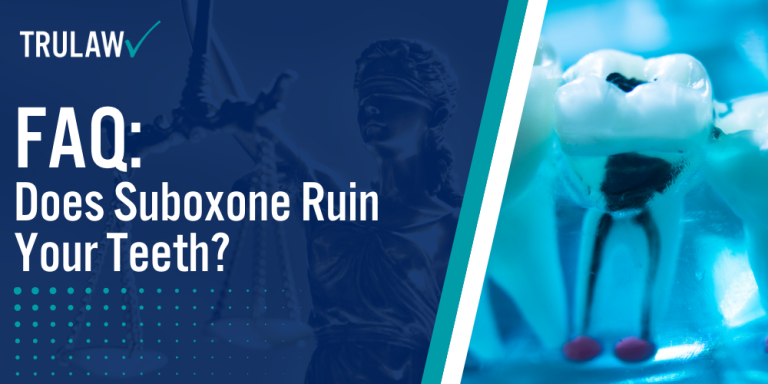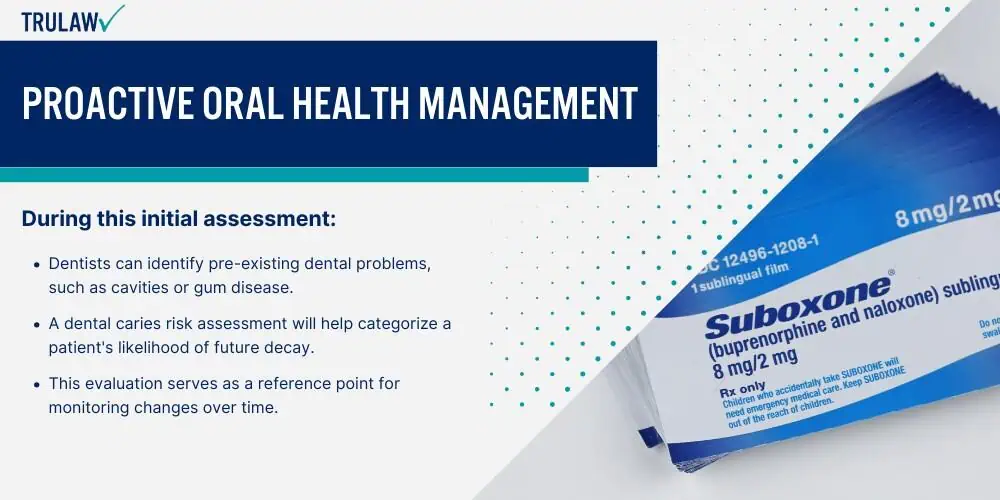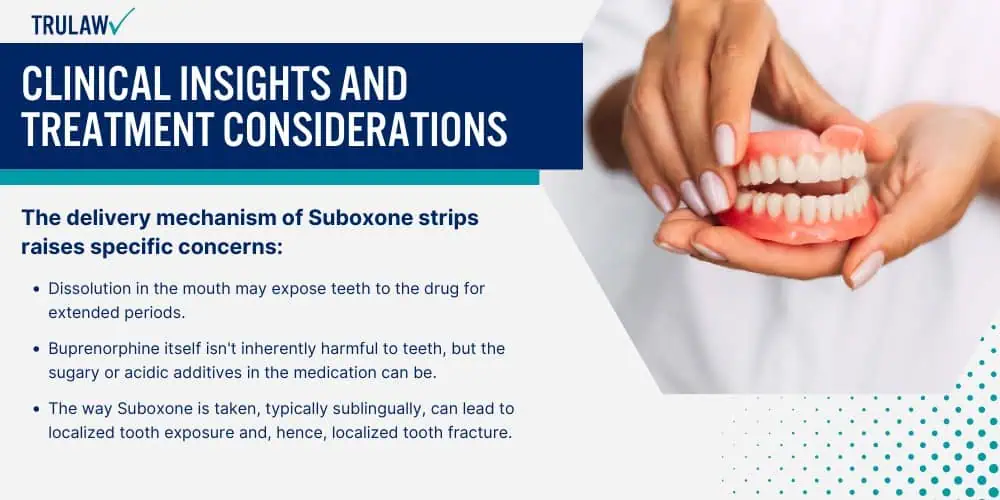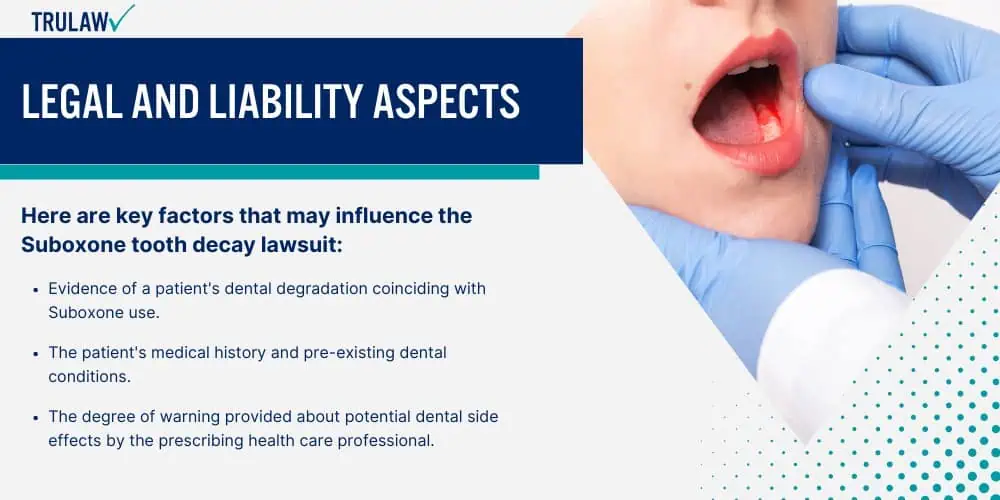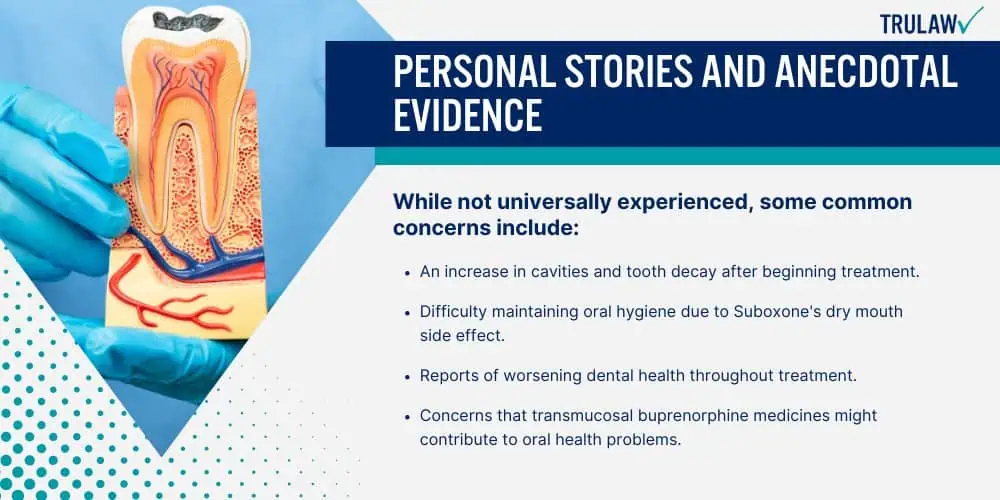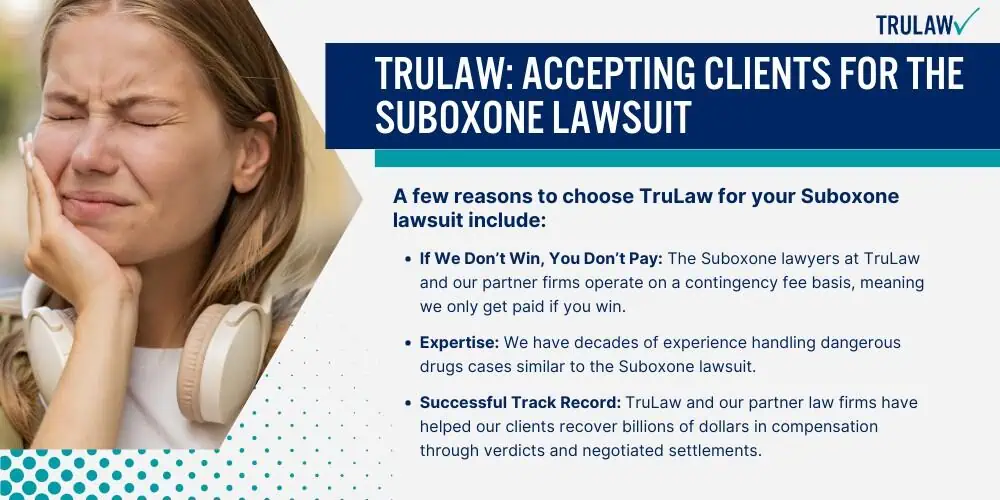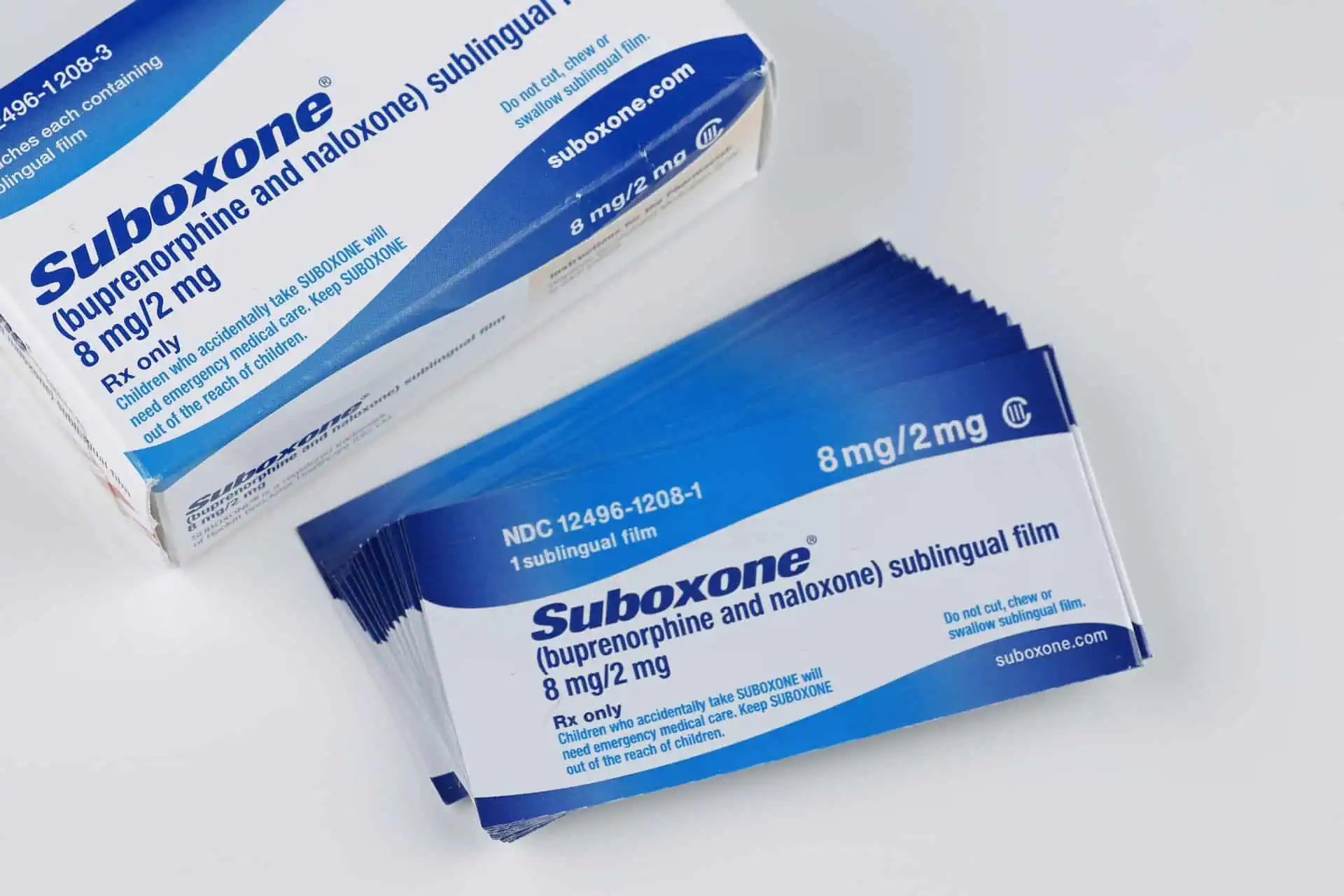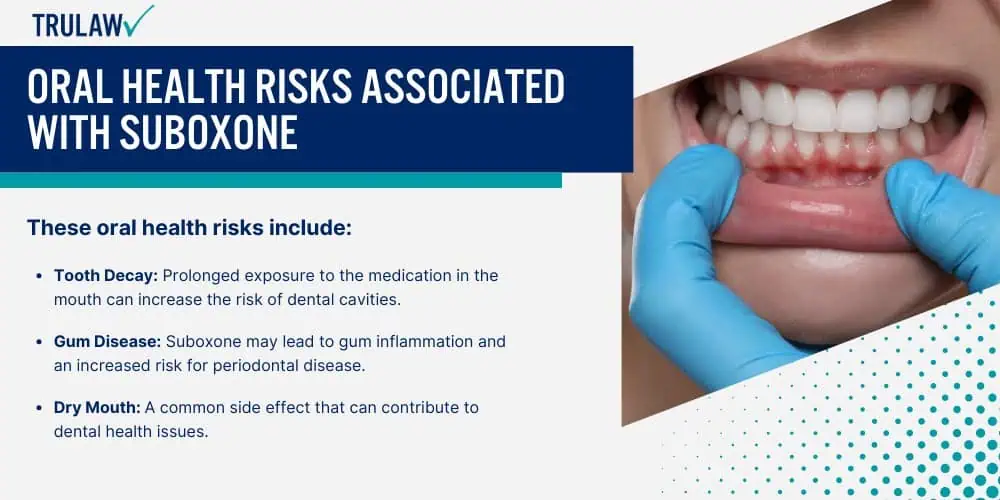
Suboxone, a medication used in the treatment of opioid addiction, has been linked with various oral health issues.
This section explores these potential risks in detail.
Suboxone’s Oral Health Complications
Suboxone can pose several dental problems when completely dissolved in the mouth.
These complications include:
- Tooth Decay: Prolonged exposure to the medication in the mouth can increase the risk of dental cavities.
- Gum Disease: Suboxone may lead to gum inflammation and an increased risk for periodontal disease.
- Dry Mouth: A common side effect that can contribute to dental health issues.
- Decay Cavities Oral Infections: A suppressed immune response in the oral cavity can lead to an increased risk of infections.
Risk Factors Contributing to Dental Problems
Suboxone can have unintended consequences for oral health.
Certain aspects of its use can create an environment that promotes dental problems.
Multiple factors contribute to the risk of dental problems in Suboxone users:
- Frequency of Use: The more often Suboxone is used, the higher the risk for oral health complications.
- Method of Administration: Dissolving Suboxone in the mouth can exacerbate oral health issues.
- Oral health History Prior: Patients with a history of dental issues may experience exacerbated dental problems.
- Hygiene Practices: Inadequate oral hygiene can lead to an increased risk of dental caries and other issues.
Evidence of Suboxone-Related Dental Issues
While Suboxone is a critical medication for treating opioid use disorder, emerging evidence suggests it may also contribute to dental problems.
Research suggests a connection between Suboxone use and dental adverse events:
- Case studies have been reported where individuals on Suboxone treatment experienced severe dental adverse events, including tooth loss.
- There has been growing awareness and documentation of suboxone tooth decay lawsuits, which highlights the prevalence and severity of such issues.
- Authorities have issued guidelines emphasizing a tooth decay prevention plan for those on Suboxone to mitigate the risk of dental problems.
- Studies and reviews provide insights into how dental decay can be specifically related to Suboxone use, such as the FDA’s warnings about Suboxone’s potential impact on dental health.
